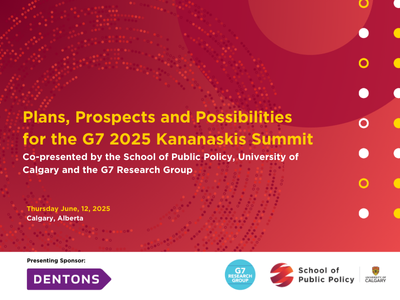Who really won the Iowa primary?
Who really won the Iowa primary? Technology is a wonderful thing and the enabler to innovation and productivity but when it comes to counting ballots, no thank you. Let’s do it how we’ve done it since the Greeks developed democracy – in open and fair counts, one-by-one, by duly-accredited election officials.
Why? Because it’s about trust, the cornerstone of representative government. Just as members of parliament (and senators in impeachment trials) have to stand up and be counted, so too should the ballots that elect our legislators.
Eventually, we will learn who won the Iowa caucuses but by then who cares? What is clear is that the specially designed app didn’t do the job. There are excuses aplenty: officials weren’t trained properly, the help-line was overwhelmed, there was no backup system, etc.
What is also clear is the pall cast on the Democratic nomination process for what is the most important job in the diminishing constellation of democracies, the presidency of the United States. As the pundits and Donald Trump have been quick to point out if the Democrats can’t get this right how can they run a superpower?
Unfair, probably, but feelings increasingly count more than facts, especially when the ‘facts’ are disputed even by the chair of the Democratic National Committee. in an era of disinformation, conspiracy theories, and fake news – much of it propagated through social media.
We increasingly rely on social media as our news source. According to Pew Foundation research (2019) more than half of U.S. adults get news from social media often or sometimes (55%). Canadians are similar.
Yet social media is riddled with bots and trolls spreading disinformation. Facebook’s most recent Community Standards Enforcement Report (July-September 2019) says it disabled 1.7 billion fake accounts during that quarter. Its not just kooks it is also those who want to discredit democracy.
Under President Putin, Russia is conducting an extensive and ongoing disinformation campaign. Targeting at least 37 countries across the transatlantic space since 2000 Russian activities through the Russian Internet Research Agency and surrogates are undermining faith in democracy. China and Iran and others are also increasingly adopting the tools applied by the Russians. The Russians use asymmetric warfare – disinformation – to undermine and weaken democratic nations and hindering their ability to govern and carry out their national interests.
Arguably its most successful campaign was its cyber-Watergate of the DNC and other institutions during the 2016 election and providing the e-mails from the DNC to Wikileaks where it acted as catnip to the media.
The Wikileaks hack was only one element of Russian interference.
The covert spreading of disinformation through social media to sow chaos and thus pit Americans against one another and create a more polarized electorate was the second element.
The third was probing the voter registration data and internal parts of the voting system, making it easier for partisans to claim the results were flawed. The ultimate effect – chaos and partisanship and lack of trust – undermining Hillary Clinton and, more fundamentally, belief in democracy. As the intelligence agencies, Senate Intelligence Committee and the Mueller inquiry concluded the Russian campaign exploited race, gender and religious divisions.
The Putin approach is simply the old Soviet methodology but using new techniques – social media. The Russians jumped on the gilets jaune in France to discredit President Macron and French democracy. Looking to 2020 we need to watch for the hijacking of activist movements that feel they are disenfranchised (eg. Black Lives Matter, MeToo). Cyber-probes on election systems may not change anything but the probes can help dispute the results of the election. Once you have been hacked it’s hard to trust again. A cyber-intrusion may be enough to discredit the election.
What more can we do to un-hack ourselves and protect election security? Paper ballots and risk-limiting audits of the ballots or a full hand-count of ballots. We need robust and shared best practices. Canada’s Security and Intelligence Threats to Elections Task Force is a model for emulation.
Technology creates new norms every day but the fundamentals of democracy – one person, one vote – do not change. Trust in the systems that sustain it– fair and open elections – is vital to democracy. That’s why we need to keep counting ballots, one by one, by human hands and with visible oversight by all interested parties and the media. The greatest disinfectant to disinformation is transparency.
Colin Robertson is an Executive Fellow at The School of Public Policy


